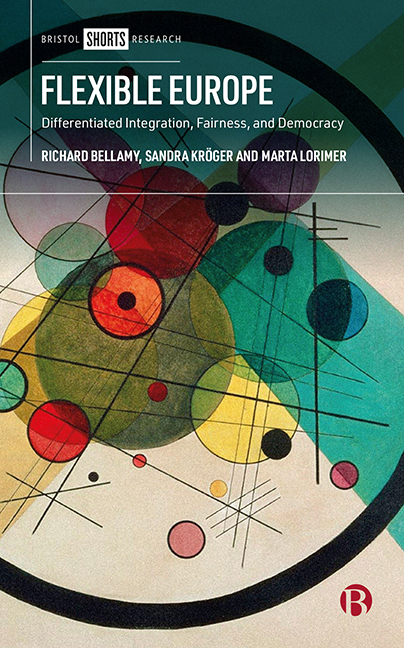Book contents
- Frontmatter
- Contents
- List of Tables
- List of Abbreviations
- About the Authors
- Acknowledgements
- Introduction
- PART I Normative Perspectives on Differentiated Integration
- PART II Political Party Perspectives on Differentiated Integration
- Conclusion
- Appendix A List of Respondents
- Appendix B Interview Questions
- Appendix C Survey Questions
- Notes
- References
- Index
Appendix B - Interview Questions
Published online by Cambridge University Press: 15 September 2022
- Frontmatter
- Contents
- List of Tables
- List of Abbreviations
- About the Authors
- Acknowledgements
- Introduction
- PART I Normative Perspectives on Differentiated Integration
- PART II Political Party Perspectives on Differentiated Integration
- Conclusion
- Appendix A List of Respondents
- Appendix B Interview Questions
- Appendix C Survey Questions
- Notes
- References
- Index
Summary
Interview Questions
1. There is currently a debate on the future institutional shape of the European Union. In your view, what institutional reforms, if any, are required?
2. In recent years, EU integration has become more and more flexible. Some countries have negotiated permanent optouts (for example Denmark). Others have been temporarily excluded from certain policies (for example the euro, Schengen). What are your views on this growing flexibility?
3. Do you think there are cases where flexibility is unacceptable? For example, do you think flexibility is more acceptable depending on whether it is temporary or permanent, or in certain policy areas?
4. What should happen with member states who do not wish to join compulsory policies?
5. Enhanced cooperation is a procedure where a minimum of nine EU countries are allowed to establish advanced integration or cooperation in an area within EU structures but without the other EU countries being involved. Do you think it is acceptable that some member states engage in enhanced cooperation when other member states prefer there to be no integration in that specific area?
6. How do you think your country would benefit from opting out of certain areas? How do you think it would benefit from being part of enhanced cooperation?
7. Some commentators have argued that flexible integration can be unfair. For example, some countries and citizens are accused of benefitting from EU projects without participating in them, while some countries and citizens cannot fully benefit from their EU membership because they are excluded from certain policies (for example Schengen, the euro). Does this criticism ring true to you? Why/why not?
8. Do you think a more flexible EU would be a good or a bad thing for democracy?
9. In a flexible Europe, do you think all member states in the Council should have a vote in decisions, or should only those states participating in a given policy area have a vote?
• What if a state is affected by a policy even if it does not participate in it? For example the euro? Is there a difference between Denmark, that has opted out of the euro, and Croatia, that has simply yet to qualify to join, but will do in the future?
• In a flexible Europe, do you think all MEPs should have a vote, or only the ones from countries taking part in a scheme?
- Type
- Chapter
- Information
- Flexible EuropeDifferentiated Integration, Fairness, and Democracy, pp. 162 - 164Publisher: Bristol University PressPrint publication year: 2022



